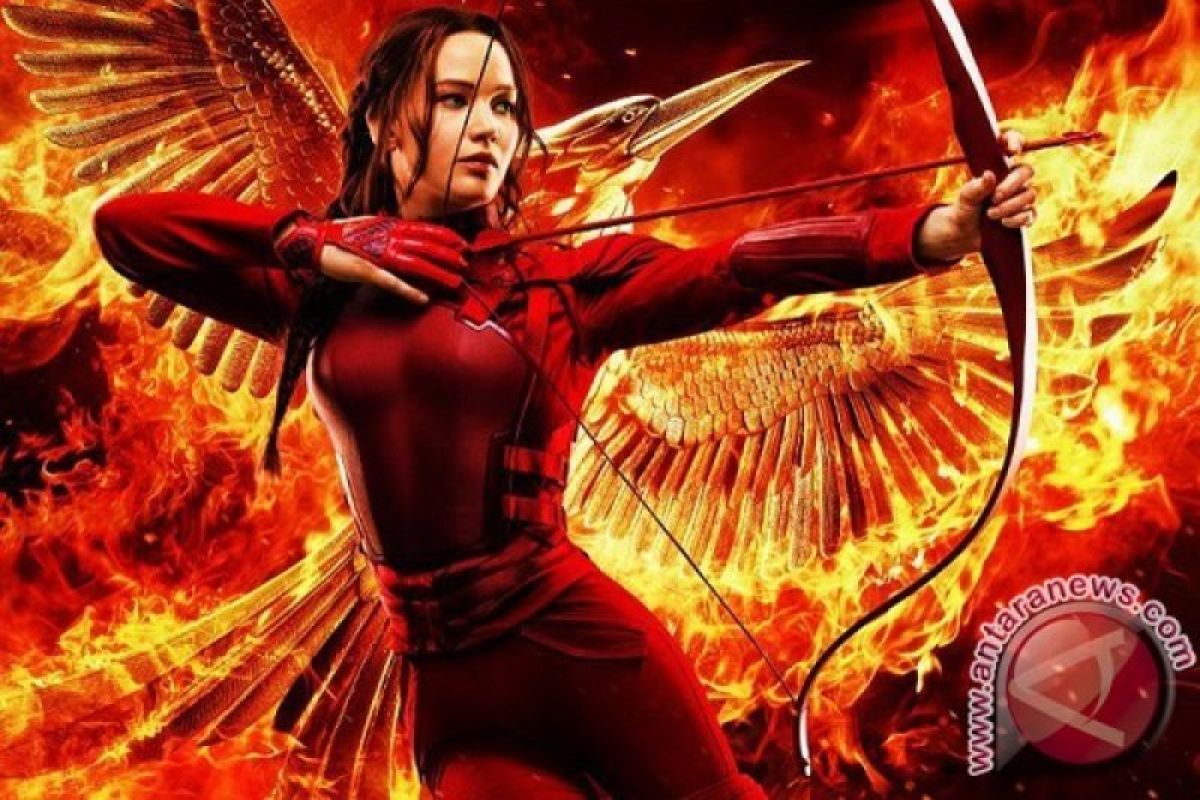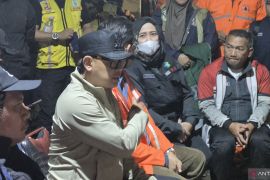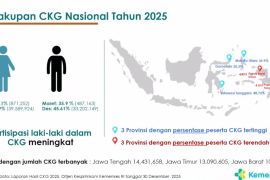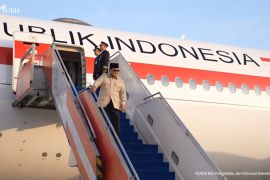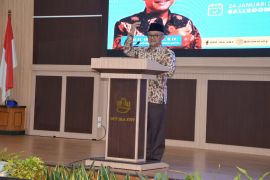I grew up with (the story of) Harry Potter, when I was in school I was always made fun of for being the smart one or the one who knew all the answers. I just like to read and learnJakarta (ANTARA) - The presence of role models is deemed an important aspect to ensure young women and girls feel empowered to pursue the field they are passionate about, especially ones traditionally seen as being masculine or male-dominated. They become living proof of women’s abilities to master certain skills and their worthiness to take their place alongside men, filling in the inequality gaps and shattering the glass ceiling along the way.
Being able to identify their passion and eagerness with certain figures in the literary field will allow women to feel empowered and it does not always have to be the ones who exist.
Female characters
Fictional characters can have just as big an influence to women and girls, and to Irish scientist Fiona Malone, her list of heroines include the one she found between the pages of fictional novels.
“I grew up with (the story of) Harry Potter, when I was in school I was always made fun of for being the smart one or the one who knew all the answers. I just like to read and learn,” she said, reminiscing her days in the classroom. “So, when a character like Hermione Granger became a massive deal, I felt like I could identify with her,” she said, referring to J.K. Rowling’s infamous girl character in her Harry Potter novel series.
The bright girl sidekick to the main character Harry Potter is known for her intelligence and penchant for literature. Her initial few appearances in the first book depicted her character fixing Potter’s spectacles, within a few moments of introducing herself.
She then progressed, throughout the books, to know almost all the answers to the questions that puzzled her friends. In some instances, she was being ridiculed for her love of books or her extensive knowledge, but that never stopped her from being the first one to put up her hand in class.
“She did not take any of the bullying or the misinterpretation of her. She believed in her abilities and was a strong character I could identify with,” Malone, who is a scientist in the Galway-Mayo Institute of Technology in Ireland, said.
Depiction of powerful female characters in books has been done throughout the years. After the Harry Potter era, young adults indulged in the dystopian times of books, serving strong female characters filled with courage and determination.
Suzanne Collins’ young adult (YA) dystopian series of novels, The Hunger Games trilogy, is centered on the female lead, Katniss Everdeen, who courageously took her sisters’ place, to be picked to participate in the deadly Hunger Games.
After the death of her father when she was 11 years old, her mother’s grief had become overwhelming and overcame her ability to provide for the family, and at 16 years old, Everdeen was forced into the role of the sole provider of her family, consisting of her mother and younger sister Primrose.
Following her participation in the government-organized Hunger Games, her journey of rebellion began, as the women who ignited the fight against the deadly games. Through surges of doubt and underestimation, as well as waves of difficult decisions to make, Everdeen powered through her struggle despite being quite literally hunted by those in power, sitting in the Capitol of Panem.
As author Sabaa Tahir wrote in an essay titled ‘Katniss Everdeen is My Hero’, published by The New York Times, her character puts out a reminder that “Teenage girls are powerful and courageous and capable of great rage. They should never, ever be underestimated”.
A reminder for young girls to ‘stick to their guns’ and staying true to themselves regardless of what they were told to do, was also carried by another dystopian young adult literature character, Beatrice Prior.
Veronica Roth’s lead character in her Divergent novels trilogy was told to hide her multi-faceted nature, as she lived in a time where everyone was supposed to belong in factions that determined their future and roles in the post-apocalyptic dystopian scene, set in the city of Chicago.
The citizens were defined by their social and personality-related affiliation with five factions, only allowed to stick to a single character trait and role in their lives.
Prior, who was born in the Abnegation faction, transferred to the faction of Dauntless as she turned 16 and was given the right to choose. Despite choosing a faction, her tests showed that she had the tendency to diverge from the norm and the mindset that the faction members were meant to have, and was thus determined a divergent.
Being different made her seem a threat by those who wanted to keep their orders intact, but it did not stop Prior from fighting for truth. When dark times eventually come for her, she was able to gather every last drop of her courage and bravery she has had all along for the greater good.
Girl power
Beyond the characters they possessed, characters like Granger, Everdeen, and Prior has shown young women and girls that they possess the abilities it takes to take the lead, to make an immense change, and to explore beyond what they were told to become. The qualities that the world today need, to make the society one that is progressive and equal.
They rightfully belong alongside their male counterparts and can earn their place in traditionally masculine roles, beyond the stereotypically feminine fields, should they choose to do so.
These characters can be the lasting reminder of their power to take place in influential positions and bettering the world for future generations, especially, for future women and girls. The ripple effect of characters inspiring real-life women leaders will eventually breed more women to pursue non-traditional roles, eventually becoming role models themselves for the generations to come.
Related news: Deciphering Indonesia in its myriad shades through its female writers
Related News: Capturing the gender inequality through Asian writers' eyes
Related News: Struggle of classic authoresses writing under pseudonyms
Editor: Gusti Nur Cahya Aryani
Copyright © ANTARA 2020
